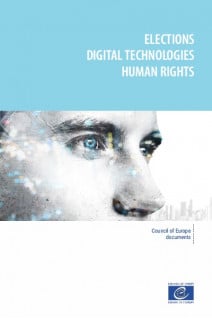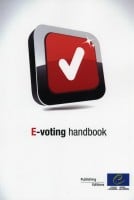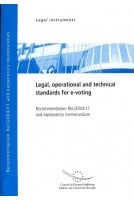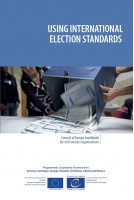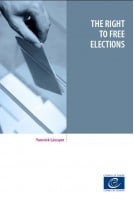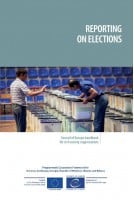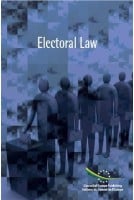COVID-outbreak affected mostly all areas of public and private life all over the world. Elections are not an exception. State authorities either delay and re-schedule the initially planned elections or consider alternative voting processes and procedures to protect voters and election commissioners from spreading the virus at the polling stations (e.g. postal voting, remote voting etc.).
Just in a few weeks, COVID-19 taught us how to live and work online. But what about voting? Paper ballots have always been the most trustworthy voting technology. However, different digital solutions may become very attractive in the given circumstances today. Whenever introduction of digital technologies into electoral process is discussed and pursued, respective legal and practical considerations should be carefully weighed up.
To this end, the Council of Europe collected its respective standards, recommendations and guidelines how to ensure right to free elections, enshrined in the European Convention on Human Rights, in the era of digital technologies and AI. The compendium will be updated on a regular basis with relevant Council of Europe documents and instruments, once they are developed and adopted.
Document 1 - PACE Resolution 1459 (2005) - Abolition of restrictions on the right to vote
Document 2 - PACE Resolution 1970 (2014) - Internet and politics: the impact of new information and communication technology on democracy
Document 3 - Recommendation CM/Rec(2017)5 of the Committee of Ministers of the Council of Europe to member States on standards for e-voting
Document 4 - Explanatory Memorandum to Recommendation CM/Rec(2017)5 of the Committee of Ministers of the Council of Europe to member States on standards for e-voting
Document 5 - Guidelines on the implementation of the provisions of Recommendation CM/Rec(2017)5 of the Committee of Ministers of the Council of Europe to member States on standards for e-voting
Document 6 - Declaration Decl(13/02/2019)1 of the Committee of Ministers of the Council of Europe on the manipulative capabilities of algorithmic processes
Document 7 - Modernised Convention for the protection of individuals with regard to the processing of personal data (Convention 108+)
Document 8 - Convention on Cybercrime (Budapest Convention)
Document 9 - T-CY Guidance Note No. 9 - Aspects of election interference by means of computer systems covered by the Budapest Convention
Document 10 - Joint Report of the Venice Commission and of the Directorate of Information Society and Action against Crime of the Directorate General of Human Rights and Rule of Law (DGI) on Digital Technologies and Elections (CDL-AD(2019)016)
